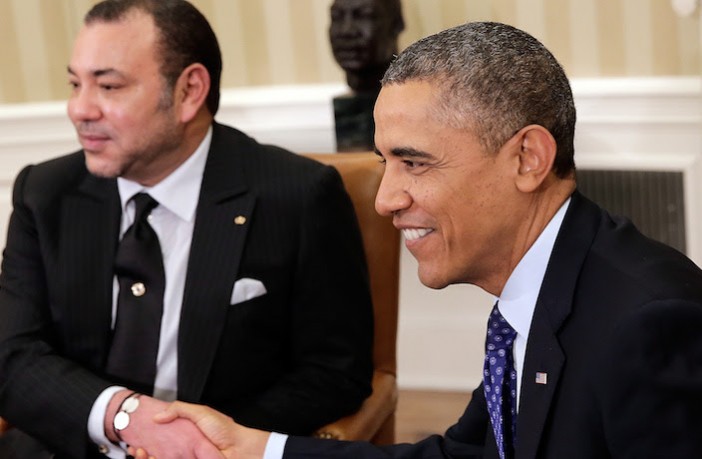Foreign Policy
by Dov Zakheimmay
Photo credit: WIN MCNAMEE/Getty Images
What should be made of the flare-up between Morocco and Washington over the State Department’s latest human rights report?
It devotes more pages to Moroccan violations than Iranian ones, and Morocco gets a third more pages than Cuba does. Moreover, the document generally cites sources other than the U.S. government’s own findings. No wonder the Moroccans are furious.
On the basis of an Amnesty International assertion, the report alleges that eight activists were imprisoned for “making false allegations of torture.” It also states that activist Wafae Charaf was imprisoned for “allegedly falsely reporting being abducted and tortured by unknown persons.” It does not indicate the source of this particular finding.
In response, the Moroccan government issued its own press release denying the veracity of the report’s assertions, calling them “outrageous,” “sloppy,” and “biased.” The Moroccans insisted that they could demonstrate that the allegations were simply untrue. And, in a highly unusual move given the normally cordial and close relations between Washington and Rabat, both Morocco’s Minister of Interior Mohamed Hassad and Minister Delegate for Foreign Affairs Nasser Bourita summoned U.S. Ambassador Dwight Bush to protest the report.
In general, the worst human rights violators pay little attention to the State Department reports. These countries simply go on doing what they have been doing. Iran’s violations are far more severe than any Morocco may have committed. The State Department’s latest Iran report includes a long section on “Arbitrary or Unlawful Deprivation of Life” and another on abductions. It should come as no surprise, however, that Iran is among the countries that take little notice.
The State Department reports even more egregious violations by the Syrian government. Yet the Assad regime continues to attack and kill its citizens. It pays little regard to reporting by the State Department, or for that matter, condemnation and “red lines” issued by the president of the United States.
Morocco’s alleged violations stand in stark contrast to the crimes perpetrated by Iran, Syria, and other manifestly brutal regimes. Yet the State Department report blandly treats all states in the same antiseptic manner. Moreover, it judges them all in terms of Western — indeed, specifically American — standards, as if those who do not adhere to them are somehow less civilized. Rudyard Kipling would approve.
Countries with poor rights records are not the only ones to ignore the reports. The State Department itself takes little notice of them. Otherwise, how could the administration have reached out to Cuba without receiving any guarantees that the government would ease its restrictions, which have not be modified one iota. Or, for that matter, given Iran’s human rights record: Why has the Administration sought to enable European businesses to circumvent sanctions imposed specifically because of the Iranian government’s mistreatment of its citizens?
It should, therefore, come as no surprise that Rabat thinks Washington is playing fast and loose with the facts, and is hypocritical to boot. Surely, it should not have been too much for the authors of the State Department report to take into account the nature of America’s relationships to countries that come in for criticism. At a minimum, the authors should have carefully examined the evidence that friendly states were willing to provide to support their cases, rather than blindly relying on assertions by non-governmental organizations that may well have their own axes to grind.
On the other hand, perhaps it should come as no surprise that a friendly country has come in for criticism by the Barack Obama administration. That has been the pattern since 2009. In the meantime, the outreach to America’s adversaries continues; that too has been White House policy since Obama took office. Both sides of that policy, alienating friends and mollycoddling adversaries, will likely persist, at least until a new occupant enters the White House in eight months time.
Photo credit: WIN MCNAMEE/Getty Images








